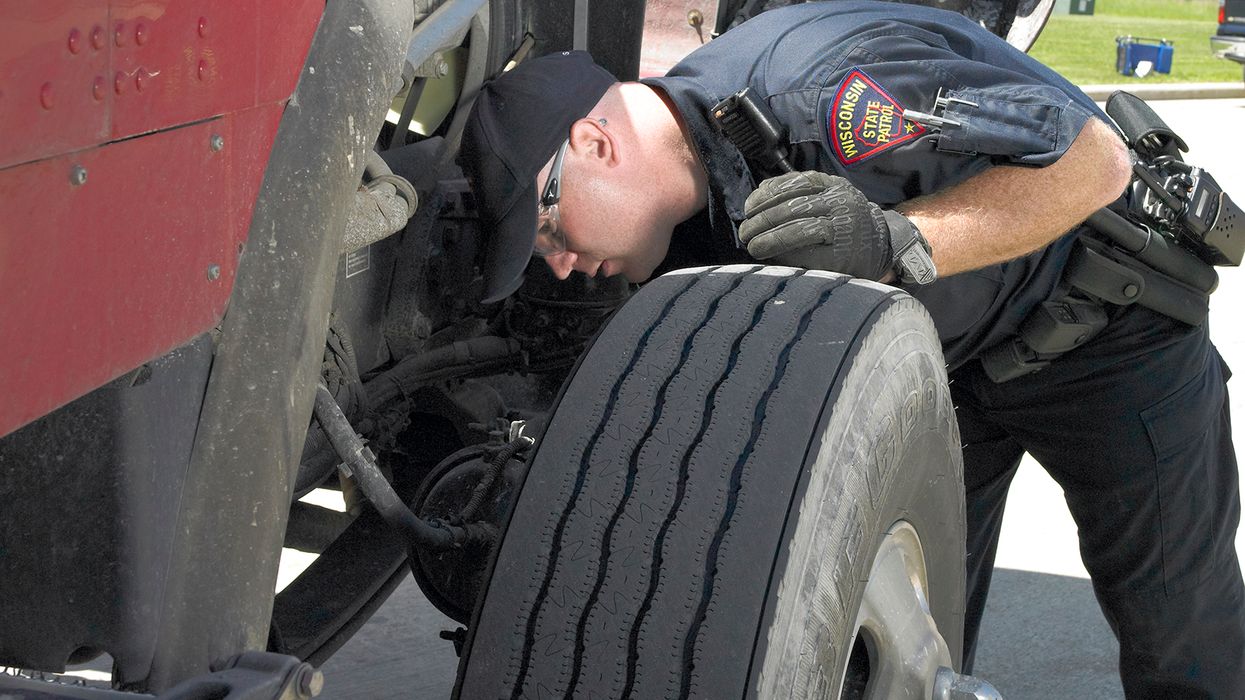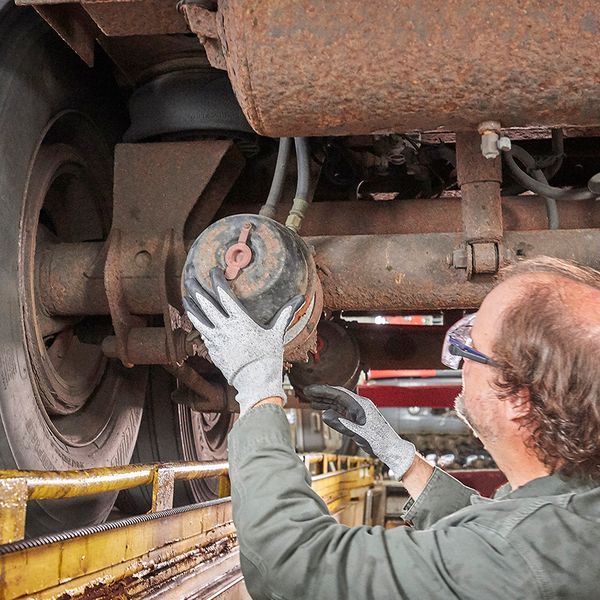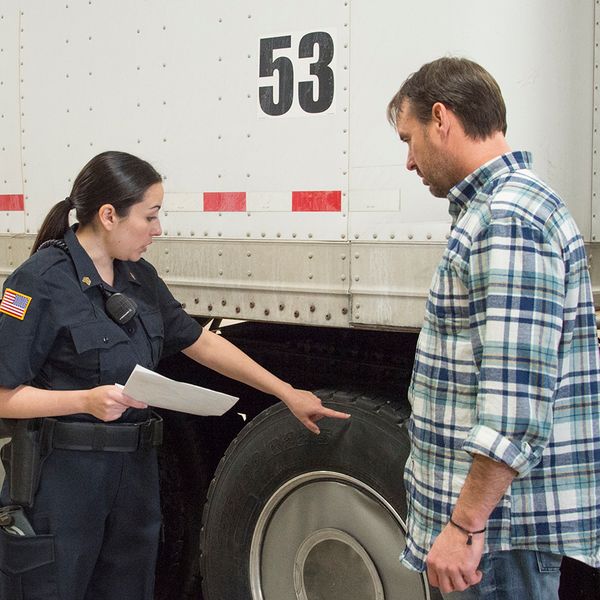Brake Safety Week is almost here: Are your vehicles (and drivers) ready?
This year, the Commercial Vehicle Safety Alliance (CVSA), will be conducting its annual brake safety event August 21-27. During this event, motor carrier inspectors will be concentrating on conducting vehicle inspections in an effort to locate vehicles with brake problems. In addition, the inspectors will be conducting outreach to educate drivers, mechanics, and others on the importance of brake maintenance and performance.
There are two keys to doing well during Brake Safety Week:
- Give drivers vehicles with good brakes, and
- Have drivers regularly inspect the vehicles.
Give the driver a good vehicle
It’s important to remember two key points about air brake systems:
- Problems do not develop “overnight.” As an example, two of the most common brake problems — a brake out of adjustment and a brake hose that has been damaged from rubbing — both take time to develop (by the way, brake hoses with chafing and/or damage will be the inspector focus this year).
- Brake systems are very complicated and require more attention than just driver inspections.
Therefore, preventing violations involves doing preventive maintenance often enough that problems are spotted by technicians and corrected before they create a violation. To prepare for Brake Safety Week, make sure that all of the vehicles are current on scheduled maintenance.
Make sure drivers are doing their inspections correctly
When it comes to driver training, the first decision you need to make is what do you want your drivers checking? Do you want them crawling under the vehicle and checking brake adjustment, brake lining thickness, and other “at the wheel” components (or do you want these components left to the technicians)? Once you decide what you want the drivers to do, train them on it.
When training drivers on vehicle inspections, spend time on the brake system and components. You need to train your drivers on how the system works, what the various components should look like (and what a defect looks like), and how to conduct system checks (leaks, alarm, button pop-out, ABS key-on, etc.). To prepare for Brake Safety Week, conduct special training or communications with drivers emphasizing vehicle and brake inspections.
The consequences of poor maintenance and driver inspections
Every brake violation an officer discovers and records on a roadside inspection report will immediately impact your Vehicle Maintenance BASIC score in CSA. If your BASIC score goes over the intervention threshold, you will be receiving a warning letter, a focused investigation, or a full compliance review (audit). However, this is better than the other consequence, which is having a vehicle involved in a crash that could have been avoided, had the brakes worked properly.
Key to remember
Having vehicles with good brake systems requires an effective preventive maintenance program and drivers who do their daily inspections (including brake systems) without fail.




















































